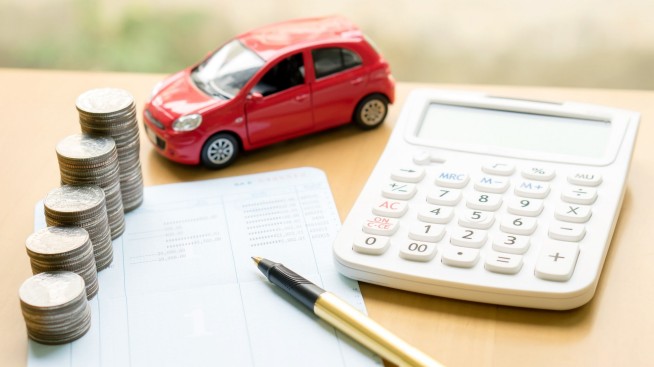Auto loans for the self-employed: A guide

Being self-employed means being your own boss, which might require you playing the role of accountant, payroll department and possibly even tax servicer, too. So, what happens if you want to apply for an auto loan while self-employed rather than on someone else’s payroll? While every situation is different, securing auto loans for the self-employed may require taking a few extra steps to demonstrate the ability to repay.
Buying a car while self-employed
Buying a car while self-employed is, in many ways, a lot like buying a car with any other type of employment. You shop around for the car you like that’s in your price range, make an offer and then, if all goes well, you move forward with the purchase. There are two possible scenarios here:
Buying with cash
If you’re buying a car while self-employed and you intend to buy in cash, there’s really not much more to do. As long as the car fits within whatever budget you’ve set for yourself, you’re in business (no pun intended). Bear in mind that you may also be likely to pay taxes and registration fees on the vehicle, plus a few other costs as well.
Buying through financing
While it’s possible to buy entirely in cash, financing a car purchase is generally a lot more common. Anyone who applies for a car loan, regardless of their employment status, typically needs to provide lenders with a few financial details, including proof of income. This helps reassure lenders that you have a steady income to repay your debts. While this typically means submitting your most recent pay stubs, this may not be so simple for someone buying a car while self-employed.
As a self-employed individual, your source of income may not always be as regular as that of an employee. As a result, your lender may ask you for further proof of income to ensure that your finances are in good enough standing to qualify for a loan.
How to show proof of income when self-employed
Do you need pay stubs to buy a car with financing? The short answer is no. However, you will likely need to provide some kind of proof of income. Here are a few alternatives you might consider:
Tax returns
Tax returns and transcripts for the last few years of your self-employment may be submitted instead of W2s or pay stubs as a way for lenders to verify your income.
Presenting your tax returns in a clear, well-organized way can be key, making sure to include any sections — such as Schedule C — that outline your business’ income and expenses for the year in question.
Your tax returns will also show if you have any additional streams of income, such as rental income or dividend income. This may additionally serve as proof that you earn enough to make good on your debts.
Business statements
While your tax returns will show your net income for the previous financial year, they won’t capture information for the current financial period. For this, you may want to draw up a financial statement for the year to date that details income and expenses for the period. Preparing a balance sheet, which shows the cumulative financial position of your business since its launch, may also prove helpful.
You may consider consulting a tax and accounting professional for help with organizing your tax returns and supporting financial information as part of your auto loan application.
Contracts and invoices
A lender may be willing to consider contractual agreements you have with clients, such as service agreements or purchase orders, as proof of expected income. Presenting clear, organized documentation can help your lender understand the nature of the contracts you have in place, including any payment agreements you have with your customers. Your outstanding invoices may also help demonstrate future cashflow.
Bank statement
Several months of bank statements could potentially show that you’re regularly depositing enough money into the account to sustain taking on a car loan.
Proof of other obligations
As part of your auto loan application, your lender will typically run a credit check to gain access to your credit score and credit report. This information may help demonstrate a history of paying your bills on time.
In addition to any credit check, you may be asked to submit statements for expenses like rental or mortgage payments, utility bills or other recurring financial obligations. This can help show your net income and financial ability to take on a new debt, and could further help demonstrate that you’ve been making timely payments and would likely do the same with a loan to buy a car.
Other strategies to consider
Here are a few other strategies for those seeking a car loan while self-employed:
- Increasing your down payment (if possible): One way to improve your odds of getting approved for financing is to increase your down payment. This helps bring down the amount you need to borrow, possibly to a level you’re more likely to qualify for.
- Getting a co-signer: You could try to see if someone you know with good to excellent credit, possibly a family member, may be willing to become a co-signer on your auto loan. This would take their favorable credit into account to help you secure a loan, but it also means they have financial liability if you fail to make payments.
- Using another asset as collateral: If you have other assets available to you (such as valuables or property) that you can potentially use as collateral against your loan, it may help you secure financing. However, this also means the lender could repossess that asset if you fail to pay, which could be a big risk depending on what you staked.
In summary
Auto loans for self-employed individuals are, in many ways, like an auto loan for someone with a job that issues a W2. If your credit score and finances are in good standing, you may be unlikely to have many issues. However, since you likely can’t submit regular pay stubs as proof of income, buying a car while self-employed may involve submitting additional financial documentation.



